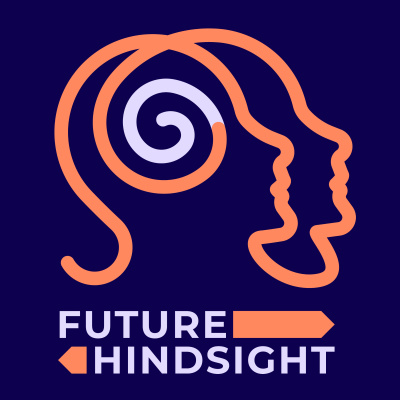Synopsis
Exploring the intersection of civic engagement and civil discourse.
Episodes
-
Electing More Women: Amanda Hunter
05/08/2021 Duration: 35minQualifications Women need to highlight their credentials early and often, particularly in economics. Voters do recognize that women understand kitchen table issues and that they mostly shoulder the emotional labor of a family. Effective campaigns use action-oriented language that illustrates how women are effective leaders in a crisis, will be accountable team leaders, and listen to experts and constituents. Finally, women who appear likable are more electable. Addressing Sexism Voters expect women candidates to call out sexism. It’s a chance for a woman to show how she can stand up for herself and, in turn, for her constituents. Gender bias against women is common among both men and women. Confronting these biases—such as ending the double standard in what we perceive as required qualifications—will make it possible for more women to run for office. Building a Pipeline of Women Candidates Electing a woman to the White House requires building a pipeline of strong women candidates in public office nationwide.
-
Diverse Women in Politics: Kelly Dittmar
29/07/2021 Duration: 35minMotivations and Perspectives The goal of promoting women to run for office is not simply to achieve parity in Congress or in State legislatures. Rather, it should be to recognize that women offer a variety of perspectives and lived experiences that men lack. In addition, women have faced more barriers than men to be elected and are generally more motivated to get things done. Confronting Our Biases Toughness, experience in national security, and negotiating tactics are often thought of as ideal leadership qualities, which are viewed as inherently male characteristics. Although female leaders do often possess these skills, championing women also means that we need to confront such biases and value traits like compassion, cooperation, and consensus building skills. Women’s Interests All women, like all men, are motivated by a large number of factors in forming political opinions. Our senses of identity are not solely based on gender, which is why there is no such thing as the “women’s agenda.” Women see the wo
-
The Chicago 7: Mark Levine
08/07/2021 Duration: 52minPublication of Transcript Levine and the co-editors were outraged by what was happening in the trial and wanted to make sure the general public knew what was going on in that courtroom. They decided to buy the transcripts from the court reporter and edited over 22,000 pages of transcript into a compilation of the most shocking colloquies, which reveal the immense effort put forth by the government to quash dissent against the war in Vietnam and the injustice of Judge Hoffman’s court. About 180,000 copies were sold shortly after the book was published. Injustice Judge Julius Hoffman was anything but fair and impartial during the Trial of the Chicago 7. He openly disdained the defendants and their attorneys, accused them of insulting him, threw some of the defense attorneys in jail, and even ordered the physical gagging of Bobby Seale, the sole Black defendant who was not even part of the protests during the convention, for four days. The guilty verdict and the trial proceedings radicalized a lot of young peopl
-
Responsible Drug Use: Dr. Carl L. Hart
02/07/2021 Duration: 33minAmerican Ideals The Declaration of Independence clearly lists the promises Americans are entitled to: life, liberty, and the pursuit of happiness. If people want to use drugs to pursue that happiness, they have a right to do so under the Declaration of Independence. Thomas Jefferson himself argued that a government deciding what we are allowed to ingest would be like living under tyranny. Drug prohibition policy, which is based on lies about the negative effects of drug use, would be un-American to him. Legalization and Decriminalization Legalization is the foundation of a humane drug policy because it makes room for regulation. Regulation can generate tax revenue and allows for quality control, which in turn ensures users are not taking adulterated substances that may not be safe. Decriminalization of drugs means you will not go to jail for using or owning certain drugs. However, selling drugs is still a criminal offense. America needs both legalization and decriminalization. Average Users The average drug u
-
The Punishment Bureaucracy: Alec Karakatsanis
24/06/2021 Duration: 33minPunishment Bureaucracy The Punishment Bureaucracy defines the array of institutions that powerful members of our society have constructed to enforce their dominance in society. This includes police officers, probation officers, prosecutors, judges, private prisons, companies who profit off prisoners, handcuff and police gear manufacturers, and many others involved in the caging of Americans. Instead of being a justice system, the Punishment Bureaucracy helps maintain the status quo and profits massively from incarceration. Who Gets Incarcerated? Our current system is used for social control, not public safety or preventing crime. Police often justify their existence to protect civilians from violent crime. However, only 4% of all police time is spent on violent crime. Most police time is spent punishing those who cannot afford to pay fines or those in possession of marijuana or other drugs. The most common arrest in the US is driving with a suspended license, and suspension most often occurs when someone can
-
White Collar Crime: Jennifer Taub
17/06/2021 Duration: 36minWhite Collar Crime White collar crime, as originally defined by Edwin Sutherland in 1939, are offenses committed by someone of high social status and respectability in the course of their occupation. Today, we tend to define white collar crime by the nature of the offense, instead of the status of the offender. We think of financial crimes such as fraud or embezzlement, which have a devastating impact on huge portions of the country. Precisely because of the high status of white collar criminals, very few are prosecuted and held accountable for their actions. Massive Scale White collar crime operates on a massive scale. Purdue Pharma, the maker of OxyContin, has pleaded guilty to federal crimes related to its opioid marketing scheme. Over 200,000 people have died of prescription opioid overdoses. In addition, embezzlement and fraud cost US citizens an estimated $800 billion per year. By contrast, property crimes like larceny and theft are heavily policed and account for only about $16 billion in costs per yea
-
Abuse and Accountability: Martha Nussbaum
10/06/2021 Duration: 37minObjectification Pride and greed are vices of domination that are at the root of sexual harassment and assault. Narcissistic gender pride casts women as objects to be used, instead of full human beings. This objectification has made it acceptable to subjugate women. Greed prevents holding the rich and powerful members of society accountable, often making it easier for them to offend repeatedly with impunity. Sexual Assault and Harassment Sexual assault and harassment are abuses of power, most often of men over women. Sexual harassment is a federal offense, defined as unwanted sexual discrimination under Title VII of the 1964 Civil Rights Act, which includes hostile work environments, and a pattern of unwelcome discrimination by gender. It can be purely verbal and discriminatory. By contrast, sexual assault means any non-consensual sexual act that includes a wide range from touching to rape, and depends on each state. This is a crime, and thus is prosecuted at the state level. Radical Love and Justice Dr. Marti
-
Coercive Work: Erin Hatton
03/06/2021 Duration: 33minNon-Traditional Labor Several kinds of non-traditional labor in the US leave Americans vulnerable to coercion at work. Prisoners work during their sentence at reduced or even no wages. Student athletes also work hard in employment-like conditions but do not get remunerated. Workfare workers are forced to do menial labor in order to qualify for welfare. Graduate students also work for their advisors and don’t qualify for minimum wage. Although not technically considered employment in the US, these are jobs and should be considered as such. Status Coercion Unfair treatment is allowed to proliferate in non-traditional workplaces because bosses hold enormous power. Prisoners are forced to work to keep their “good standing” status, and are denied the right to exercise, purchase better meals, or call loved ones. Student athletes are at the whim of their coaches and must strive to stay in their good graces to receive playing time. Workfare workers are forced to work the menial tasks set forth by their bosses or risk
-
Understanding Poverty: Mark Rank
27/05/2021 Duration: 30minMusical Chairs American poverty is a bit like a game of musical chairs. The US only has good opportunities for 8 out of 10 Americans, meaning 2 people always lose. Instead of adding new opportunities or chairs, we shuffle the opportunities around, but 2 of every 10 people still end up without the opportunities. This shows that poverty is a result of the systems we have in place, not personal shortcoming, and if we continue shuffling the opportunities, we will continue having a poverty problem. Poverty Myths Being poor in the US is subject to several damaging myths that make it harder to reduce poverty rates country wide. We think of a poverty rate between 10-15% of the US population, but shockingly 60-75% of Americans will spend at least one year of their lives in poverty. Another myth blames poor Americans for their own poverty, not the systems that maintain poverty in America. We also assume the costs of poverty are borne by the poor, but US taxpayers pay more than $1 trillion per year due to the externalit
-
Better Peacebuilding: Séverine Autesserre
20/05/2021 Duration: 39minIdeal Peacebuilding The ideal peacebuilding model is context-specific. It heavily relies on grassroots peacebuilding efforts by the local community to address specific causes of violence. It also relies on outsiders using the traditional top-down approach to connect with government officials, elites, rebel leaders, and other power players. These responses should be led by locals with knowledge and supported by outsiders with resources. Communities must make the decisions that impact themselves, instead of outsider interveners. Bottom-Up Peacebuilding Bottom-up peacebuilding is a way to end conflict that focuses on identifying the roots causes of violence in a specific community, and addressing them directly. It engages all participants to reach long-lasting solutions to distinct and sometimes unrelated issues, resolve disputes through mediation, and work with outside organizations to help fund grassroots operations. Bottom-up peacebuilding has often succeeded where top-down peacebuilding efforts have failed.
-
Public-Private Paradox: Colin Jerolmack
12/05/2021 Duration: 34minPublic-Private Paradox: America has clearly delineated public and private domains: the public domain is regulated, and the private domain is not. A public-private paradox occurs when a decision made in the private domain creates issues in the public domain. In the case of fracking, choosing to allow drilling in your land is a private decision. That decision creates many externalities such as overuse of roads, unwanted sights and sounds, contaminated well water for the neighborhood, which harms the public good. Tragedy of the Commons The Tragedy of the Commons explains how individual decisions pertaining to common resources can lead to degradation of that resource, hurting everyone. It’s in everyone’s own best interest to use as much of a common resource as possible, because if they don’t, someone else will. Unfortunately, when everyone does this the shared resource is often quickly degraded. In the case of fracking, many landowners decided to lease land because their neighbors were doing it, and choosing not
-
Boosting Mental Immunity: Andy Norman
06/05/2021 Duration: 34minNew Socratic Method Socrates used direct questioning to make ancient Athenians reflect critically on their views, which often made people look foolish. The New Socratic Method is a kinder, gentler version that can actually change people’s minds without resentment. Clarifying questions can reveal why ideas are bad without antagonism. The New Socratic Method can be used to strengthen mental immunity and root out bad ideas. Reason’s Fulcrum Reason’s Fulcrum is a key part of the mind’s mental immunity. It states that if two people have differing points of view, the one with the best reasons supporting their argument will “win” and the loser must reflect and change their mind. When Reason’s Fulcrum is used, good reasons can change people’s minds. When it isn’t working, people lose the sense that speech and actions have accountability, and it becomes very difficult to change minds. Substantive Collaborative Dialogue One of the best ways to strengthen mental immunity in yourself and others is to have the difficult c
-
The Erosion of America: Sarah Kendzior
29/04/2021 Duration: 34minThanks, HelloFresh! Go to HelloFresh.com/hopeful12 and use code hopeful12 for 12 free meals, including free shipping! The Erosion of America Since the 1980s America has experienced an erosion of government regulations, societal norms, and equality. Trickle-down economics created a massive wealth gap. The Iran-Contra scandal set a new, low accountability standard for the highest levels of government. 24-hour news appeared as the Fairness Doctrine fell. This background, coupled with reality TV and social media, provided the perfect conditions to mainstream someone like Donald Trump. Myth of American Exceptionalism Every country is susceptible to democracy decay. American exceptionalism has helped mainstream government corruption because it blinds us from warning signs like illegal government acts or the threat of authoritarianism. Pretending that institutional collapse cannot happen in the US, makes it difficult to admit that we have experienced decades of decline in our institutions. Trump: Political Insider
-
America’s Evil Geniuses: Kurt Andersen
22/04/2021 Duration: 37minEvil Geniuses Influential conservatives have capitalized on a wave of cultural nostalgia after the turbulent 1960s to turn our economy into a version of extreme capitalism. Economists like Milton Friedman, politicians like Ronald Reagan and Mitch McConnell, and CEOs like the Koch Brothers have used money, policy, secrecy, and cultural movements to demonize the federal government and rig our economy for the rich. Together with neoliberalism from the left, the New Deal was replaced by the raw deal. Investing in America The US government is responsible for many of the greatest inventions of the last century, but does not capitalize on these discoveries. If the government acted like a private enterprise, it would have more money to invest in communities as well as support innovation. In Republican-led, individualist Alaska, royalties earned from natural gas and oil drillers is distributed to all Alaskans every year. The program is a form of socialism, a universal basic income. The government could use the Alaska
-
Season 14 Trailer
17/04/2021 Duration: 02minWe are launching an all-new authors’ season, focusing on books that get into the weeds of America’s most vexing problems. We’ll be talking about everything from criminal justice, philosophy, to economics, labor, and poverty. Our first guest is the legendary Kurt Andersen, on his latest book: Evil Geniuses, The Unmaking of America: A Recent History. He looks under the hood of the movements that powered our continuous shift to the right, starting with a strong yearning for nostalgia. Sarah Kendzior, author of Hiding In Plain Sight, The Invention of Donald Trump and the Erosion of America, follows on the heels of that interview with a deep dive into how the former president was decades in the making. And after that, we speak to Andy Norman, the author of Mental Immunity, Infectious Ideas, Mind Parasites, and the Search for a Better Way to Think. He offers tools to inoculate our minds against the worst forms of ideological contagion. It will be a thought-provoking season of visionary and practical ideas to reimag
-
Pandemic Podcasting: Laura Joyce Davis
15/04/2021 Duration: 39minBeing a Good Neighbor Solving community problems can begin with a simple, common goal of being a good neighbor. Deep human relationships with people make the hard conversations—where we don’t agree—possible. Finding common ground with different backgrounds can be hard, but focusing on caring for your neighbors strengthens communities and personal relationships alike. Storytelling Personal stories are an incredibly powerful tool for community building. Stories are the ways we make sense of life. When you tell someone your story, they stop seeing you as an issue or an enemy, and look at you as a person. This shared humanity lets us see the world through others’ perspectives, which is critical to being a good neighbor. Society’s Full Potential Future Hindsight and Shelter in Place share a common goal: to help us realize our best selves. Shelter in Place focuses on the microscale through personal stories and motivation. Future Hindsight hopes to inspire listeners go from the personal to get engaged on the commun
-
Our Unjust SCOTUS: Adam Cohen
08/04/2021 Duration: 27minCampaign Finance Laws The Supreme Court often operates like a conservative activist group to help the GOP. One of the most egregious ways they've tipped the scales is in campaign finance. Starting with their infamous Buckley ruling in 1976, SCOTUS categorized corporate political donations as free speech. Their 2011 follow-up, Citizens United, removed almost all limitations on political spending, creating a vast increase in campaign spending. Rich Americans and corporations are now free to give as much as they want to whoever they want. This has greatly benefitted Republicans at the cost of electoral fairness. Poverty The liberal, pro-New Deal, Warren Court was replaced in 1969 by the conservative Burger Court. The contrast was stark. One of the Warren Court's last cases provided significant due process protections to poor Americans whose welfare benefits were in danger. As soon as the Nixon-appointed Burger stepped in, decisions changed. The Burger Court immediately heard a case involving family caps on welfa
-
Raising White Kids: Jennifer Harvey
24/03/2021 Duration: 31minRace-Conscious Parenting Race-conscious parenting affirms that we should notice race, and to recognize racism and racial injustice. It rejects colorblindness, which is essentially white silence. Race-conscious parenting embraces multicultural, multiracial communities and encourages children to be active participants in anti-racist engagement. Race-conscious parenting is a commitment to teach about racism and activate for racial justice. Smog of Racism Racism is like smog: it exists whether we notice it or not. It’s worse when we don’t realize it exists because then we do not counter it. It doesn’t take an adult to actively teach racism to children. White families often don’t realize or talk about the smog of racism, which creates a space for children to interpret the world themselves. They will draw their own conclusions when systems of injustice remain invisible to them. Health White Identity Healthy white identity in the US is anti-racist. It acknowledges the full history of the nation, both good and bad, f
-
Equity in Healthcare: Georges Benjamin, MD
18/03/2021 Duration: 34minExpanding Access Health insurance is essential to accessing healthcare. The uninsured do not get routine preventive care and, therefore, experience lower health outcomes. We must have a system that includes everyone, whether through private or public sector options. The Affordable Care Act, which was just bolstered by the newly passed American Rescue Plan, goes a long way, but many states still need to expand Medicaid in order to close the insurance gap. COVID in Minority Communities COVID hit minority communities hardest. African-Americans were three times more likely to get COVID, and twice as likely to die from it, as their white counterparts. Structural discrimination means more minorities are in public-facing jobs, working in grocery stores or driving buses, increasing their exposure to the virus. Minorities also traditionally suffer from being in jobs that don’t offer health insurance, living in neighborhoods with no doctors, and facing discrimination within the healthcare system. Representation in the
-
Inclusive Excellence: Franklin Gilliam
11/03/2021 Duration: 32minInclusive excellence Diverse leadership and promoting inclusive excellence benefits everyone. In fact, it’s critical to success in any organization. Always including women and minorities in a pool of job candidates increases the likelihood in finding the best possible person. This is also especially important in traditionally non-diverse positions or departments, like the IT department. Diverse leaders can both promote new ways of thinking and prevent harmful decisions from being made. Social Mobility Higher education provides social mobility to many students, and is perhaps the most important aspect of a college degree. Many of UNC Greensboro’s students come from disadvantaged backgrounds, but arrive with intelligence and drive to succeed. UNCG is committed to replicating some of the advantages of well-off students for its own student body and delivering excellence in education. Unsurprisingly, UNCG is rated number 1 for social mobility in North Carolina. Get Invited to the Cookout Cross cultural understand

































